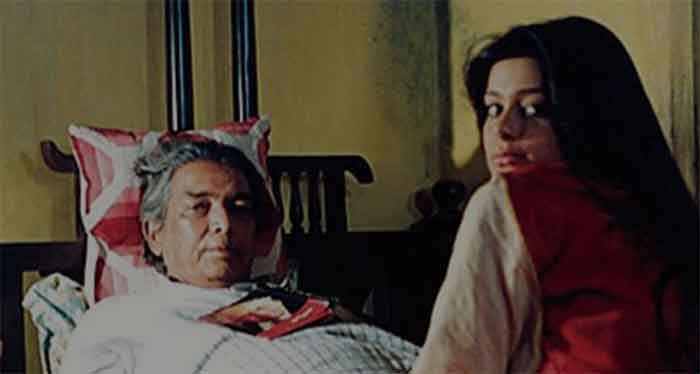
PM Modi said in a press conference that the religious minorities in India do not face any discrimination and that India’s democracy remains faultless during his infamous visit to the US. However, it is common knowledge that the scenario in India could not be more different. Despite being a secular state, India as a nation has not lived up to the secular dreams of its founders. Minorities in the nation, especially Muslims, have been facing constant discrimination in plain sight throughout the history of independent India. The destruction of the Babri Masjid is perhaps the most symbolic of all the vile demonstrations made by the far-right Hindus. The demolition of the mosque at the hands of a wing of the Sangh Parivar remains a watershed moment, marking the emergence of hard-core Hindutva in modern Indian politics.
Saeed Akhtar Mirza’s 1995 film “Naseem” depicts the journey of a young girl named Naseem against a watershed moment in India’s history of bigotry and communal violence. Set in the early 1990s, the story captures the transition from a time of harmony to a period marked by hate and communal tensions during the demolition of the Babri Masjid. Naseem’s personal experiences, as witnessed through her innocent eyes, mirror the larger societal changes unfolding around her. The film gives us glimpses into the everyday life of Naseem for seven months leading up to the destruction of the Masjid. Khaifi Azmi the poetic legend takes on the most critical role of Naseem’s Dada-Jaan in the film. Dada-Jaan, a bedridden man who loves his family and the art of storytelling is deeply tied with the iconography of the Masjid itself.
Naseem’s easy-going nature and mellow routine contrast deeply with the communal chaos going on throughout the country at that point in time. The film’s opening scenes effectively establish a sense of separation within the community and Naseem’s role as a witness caught in the middle. As Naseem combs her hair while the TV plays in the background, the calmness of her reflection in the mirror is disrupted by the voices of yelling men. This serves as a precursor to the divisive events that would soon unfold. The positioning of her family members on either side of her reflection symbolizes the diverging paths that lie ahead, highlighting the growing divide in society.
Naseem’s search for identity becomes a central theme as she seeks to understand the meaning of her name. The interaction with her grandfather, who tells her that Naseem means the morning breeze, emphasizes her desire to connect with something positive amidst the changing atmosphere. This quest for self-discovery and understanding becomes Naseem’s anchor as she navigates through turbulent times.
As communal tensions rise, Naseem’s parents shield her from the violence by keeping her uninformed. This protective approach is evident when Naseem finds her parents fixated on the TV but unable to disclose the disturbing events taking place outside. The audience shares Naseem’s confusion and frustration as she seeks answers from her family members who remain silent, their actions embodying a desire to preserve her innocence.
The loss of innocence is exemplified through Naseem’s encounters with personal tragedies. The sudden demise of Parvati Bhabhi, a neighbour, reflects the brutality that women face within of society. This incident shatters Naseem’s perception of the world, exposing the darker aspects hidden from her until now. Parvati Bhabhi is one of the few Hindu characters that Naseem is shown to have a deep connection with within the film. Her untimely violent demise is also symbolic of the murder of secular Hinduism and the death of the allyship that existed between the two religions.
The film cleverly intertwines historical narratives within the personal journey of Naseem. As Naseem’s grandpa narrates stories about his own experiences as a “freedom fighter”. These stories not only connect Naseem to her heritage but also inspire her to question the present circumstances and the societal changes that have led to the current turmoil. Naseem often finds comfort in the stories of Dada-Jaan’s past. The ideal India that many dreamed of pre-Independence lives in these tales woven by the old man. In a conversation between Naseem’s father and her grandfather, the question of why her grandfather did not migrate to Pakistan during the partition arises. This dialogue serves as a reflection on the sense of belonging and the memories that make a place feel like home. It alludes to the essence of India, beyond religion and other differences. Naseem is also seen asking the meaning of her name to her Dada-Jaan, both at the beginning and the end of the movie, showing us that despite all the changes and chaos, the maker has faith in the youth of India to be like Naseem, the fresh morning breeze of change and harmony.
The death, chaos, and hate that has ensued since December 6th, 1992 has seen no end. Houses, mosques, and workplaces of Muslim people are brought down with hate. A Ram Mandir has been constructed in place of the Babri Masjid. This new India, which has existed since the passing of Naseem’s Dada-Jaan and the masjid itself, does not portray the image that our Prime Minister has presented on the world stage. Naseem’s coming-of-age story set three over three decades ago, still resonates and represents the story of thousands of children in our country.
Neha Tuheen is an undergraduate student of International Studies at FLAME University, Pune.
Email: [email protected]
















































